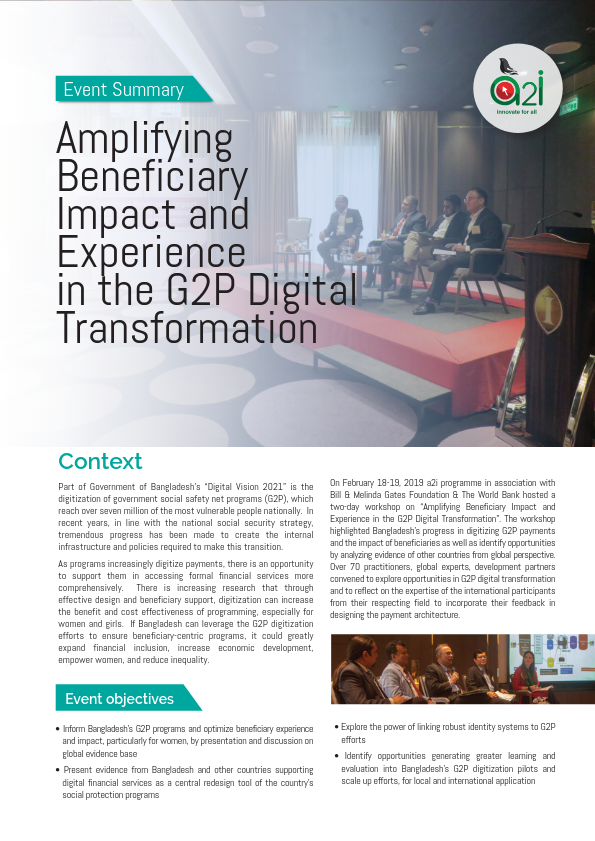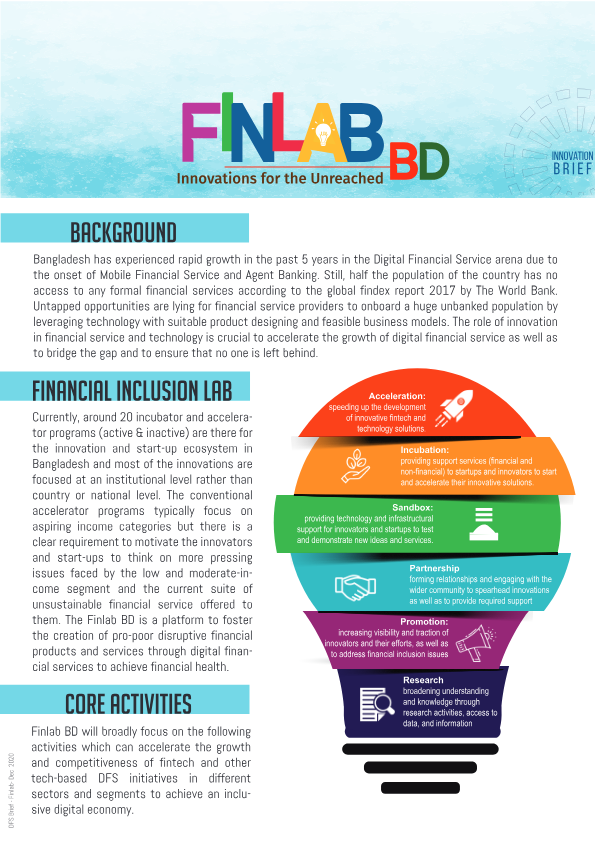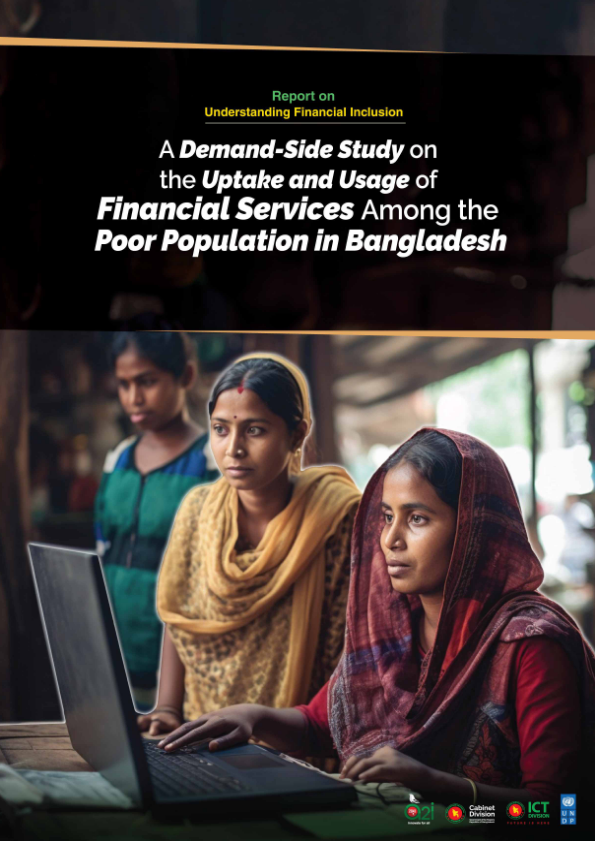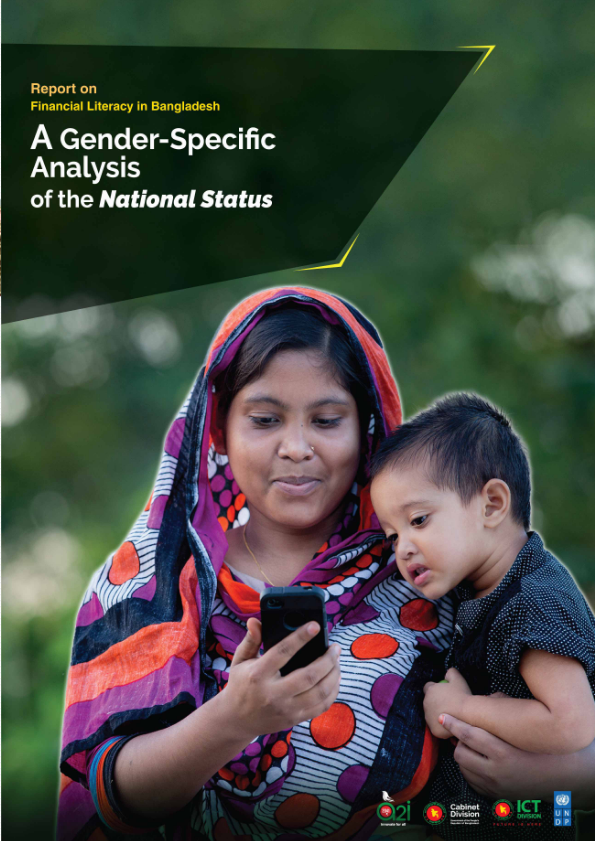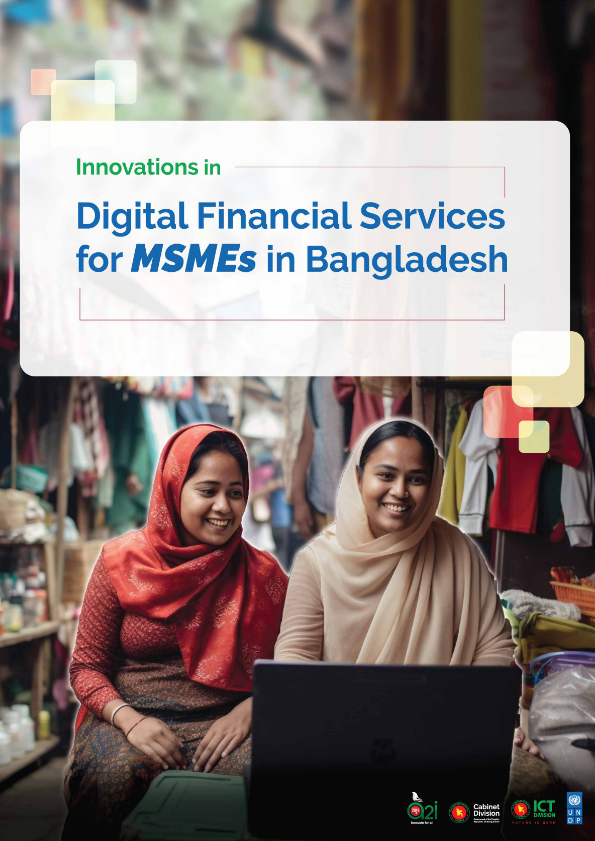Our Initiatives
To collect the USD 7 a month that the government sends as social safety net allowance (SSN), citizen-beneficiaries have to travel long distances to the nearest state-owned bank branch, spend hours standing in line, sometimes needing to come back the next day. Factoring in the cost of travel and food alone, they spend over 14% of the allowance before they even receive it.
a2i, in collaboration with the Ministries of Social Welfare, Finance, and Bangladesh Bank, developed the ‘Citizen’s Choice Architecture’ for digital payments of SSN Programmes – such as elderly allowance, allowance for widowed, deserted, and destitute women, allowance for financially-insolvent disabled people.
Guided by the ‘AIM Principle’ (Account + Identity = Mobility), it allows for the disbursement of allowances at accessible cash-out points at the union level (the lowest administrative tier comprising 9 villages), or even at the homes of the elderly or persons with disability.
Citizen-beneficiaries simply walk a short distance to the nearest Digital Centre or agent banking booth, and using biometrics under the supervision of the local entrepreneur or, business correspondent appointed by an agent bank, cash out their allowance from their own full-service bank account that is tied to their unique national ID number. The whole technology setup requires only an active mobile data connection in order to function.
25+ Million
Digital Payment Beneficiaries
Paying utility bills is no less than a nightmare for most Bangladeshis. Long queue, mismanagement and tediousness are what every bill-payer had to experience when the process was fully manual. Although digital bill payment was introduced to the metropolitans and suburbans, by different service providers individually; there was no such platform for the underserved ones.
a2i’s DFS Lab has initiated ekpay, a simple one-stop bill payment platform for gas bills, electricity bills, school fees, traffic prosecutions bills, insurance bills, and more, at a lower transaction cost. Launched on 20th October 2019, ekpay has benefited 3.9 million citizens and collected USD 75 million in bill and fee payments. Ekpay covers the entire geographical location of Bangladesh. The infrastructure mechanism allows the users to pay the bills, anytime, anywhere. Ekpay users can either attain these services online, with integrated financial service providers such as banks and mobile financial services and fintech organizations or through a network of 250k+ agents operating across Bangladesh.
Ekpay ensures the service system is easily accessible, reliable, and secure for users by providing an interoperable platform. It can be connected with partner organizations via the backend through API, ultimately allowing them to provide bill payment solutions to their customers.
$75 million
Bills and fee Collected
3.9 million
citizens benefited
250,000+
Agents in Operation
Nearly half of all adults in Bangladesh remain unbanked. The majority of them are poor and lack access to even basic financial services. A major obstacle that prevents these poor and often uneducated citizens from availing of banking services is their remoteness and hefty paperwork required at banks. Another major hurdle for mainstream commercial banks to service rural citizens is the extra cost they incur in terms of establishing branches – staffing, rent, electricity, etc.
Thus, in alignment with the strategic priorities of the Honorable Prime Minister’s Office and at the invitation of Bangladesh Bank, a2i provided the support necessary to create an ecosystem hospitable to the introduction and expansion of rural branchless banking (RBB) in Bangladesh – starting with the drafting of the necessary policy guidelines and even popularizing the model through the countrywide network of Digital Centres.
Mainstream banks can now offer real time, full-service banking services by simply plugging into an existing agent network such as that of the 4,500+ Digital Centres and attain instant presence in rural areas across the country. The RBB points are helping people open bank accounts, pay for their utility bills, make regular deposits, withdrawals and even secure loans or purchase insurance. Also, receiving government social safety net allowances, subsidies, and foreign remittances have been enabled through this channel.
$3.1
Million
Accounts Opened
$2.39
Billion
Savings from Rural People
$372
Million
Worth of Loan Disbursed




